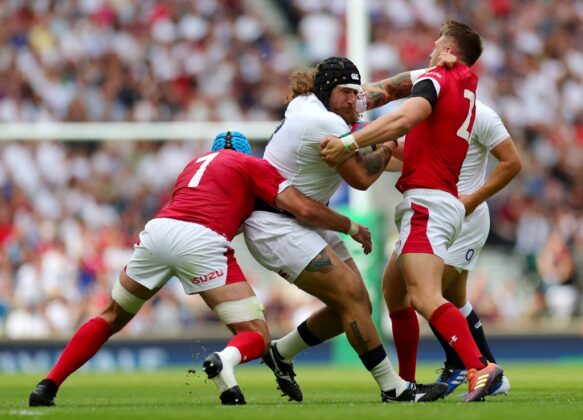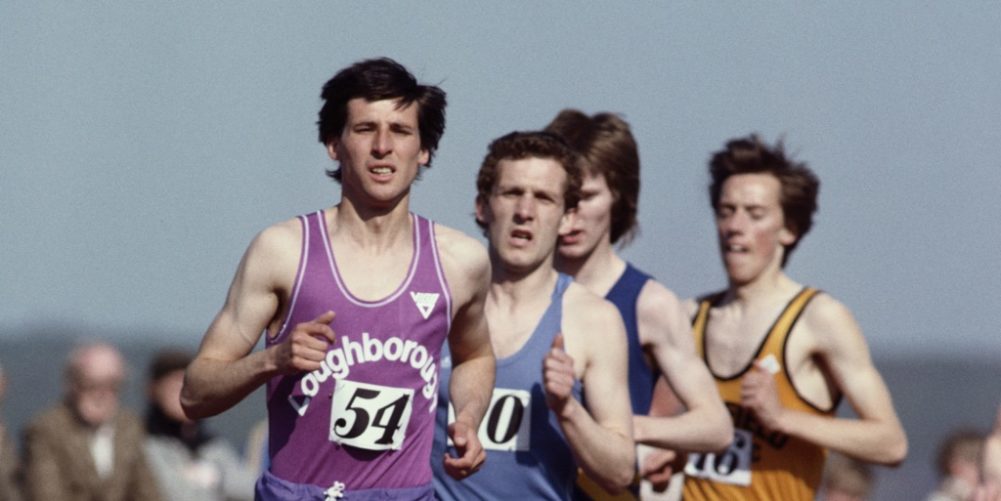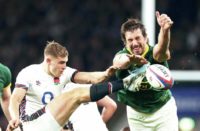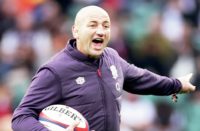Exactly 100 years ago this month one of the most influential rugby clubs of the 20th century was founded as the world returned to normal after Word War 1.
I refer, of course, to Loughborough Students who have not only produced an endless conveyor belt of top quality players, but, even more importantly, have moulded hundreds, possibly thousands, of talented rugby-loving school teachers who have spread the gospel at every level across the globe
It’s a mighty rugby legacy and well worth celebrating…which is exactly what Loughborough are currently doing with a series of lunches for students from each decade. Last week it was the 70s – arguably Loughborough’s golden era along with the 60s – while yesterday it was the 80s.
The list of Loughborough rugby alumni is almost endless and elsewhere I have attempted to capture the essence of that by picking an all-time Loughborough XV. You could, without too much sweat, select a Loughborough Second XV to give them a very decent game.
And let’s not forget the ladies either. Some of the great early pioneers of top class women’s rugby in the mid and late 80s rugby learned their stuff at Loughborough with some like Karen Almond arriving as an international quality hockey player before catching the rugby bug while in residence.
Wales‘ Lisa Burgess was another as were England legends Nicky Ponsford and Emma Mitchell while, more recently, former Loughborough students such as England skipper Sarah Hunter and Women’s World Player of the Year Emily Scarrett lead the way.
Then you have the coaches and gurus like Ray Williams, John Robins, Jim Greenwood, Rex Hazledene, Clive Woodward, Maurice Trapp – who made Auckland the greatest club side on the planet – Andy Robinson and many others. In the second half of the 20th century no centre of learning contributed more to the wider game than Loughborough.
“It’s a very proud legacy,” reflects Fran Cotton, one of Loughborough’s finest. “We were there to get PE degrees so we could immerse ourselves in sport generally as well as rugby and it was an inspiring environment for a rugby player in which to absorb all sorts of skills.
“Our quick guys like Keith Fielding could train with GB Olympic sprinters and long jumpers. There would be international judo players, swimmers, basketball dudes, weightlifters all sorts. When you were in the gym you couldn’t mess around or else you would look stupid. It was all about sporting excellence.
“And then there was our rugby style that was handed down through the years. We were young students faced with a first-class fixture against teams with hulking great packs of mature men, many of them established Test players. We had to play a fluid game, fast tempo, move the opposition pack around, find ways of winning every scrap of possession we could muster. Clever kick-offs, shortened line-outs, we had to be innovative. At Loughborough all the forwards were expected to be complete rugby players.”
The College side first mustered in that Michaelmas term in 1919 and played mainly against local sides before the University scene started to expand with the old UAU tournament which Loughborough first contested in 1930. Swansea were the dominant force in those pre-war days, but Loughborough went on to win that on 25 occasions before it became the BUSA tournament which eventually morphed into the current BUCS competition. In total, in the three competitions, they have 40 victorious campaigns under their belt.
During the 50s a raft of big names – not least Eric Evans, Jeff Butterfield, Ray Williams and Alun Pask – studied at the Colleges and started to make the side a power in the land. The first of those UAU titles came in 1953 while in 1959 – with the athletic and skilful Pask to the fore – Loughborough won the first of five Middlesex Sevens titles, a tournament they were to grace for decades.
The year 1959 was also when the big annual rivalry with St Luke’s College in Exeter got underway with a challenge game at Old Deer Park, two centres of sporting excellence going toe to toe. That rivalry continues although St Luke’s now muster as Exeter University after the big educational changes of the late 70s.
The 60s and 70s were halcyon years with two of the best and most innovative British coaches establishing a true rugby dynasty.

Former Wales and Lions prop Robins, who had trained at the Colleges straight after the war and coached the 1966 Lions although he was called the manager, guided the likes of Gerald Davies, John Mantle, Colin MacFadyean, Dave Rollit, John Taylor and Bevan Risman and, unsurprisingly, Loughborough won six out of seven UAU Championships between 1962-68 and two of their Middlesex Sevens titles.
In 1967 Robins handed over to former Lions flanker Greenwood and before long the Scottish maestro was stretching the minds of a succession of major rugby talents. Greenwood was an exceptional rugby player but he was actually hired by Loughborough as an English lecturer and it was his facility as a communicator that underpinned his coaching style.
Rarely was there any shouting and screaming, although if a particular drill was not completed to his satisfaction he would keep you out on the ground until it was dark. He much preferred to appeal to reason and work quietly away at weaknesses.
Greenwood coached the Colleges to victory in the Middlesex Sevens in 1970 followed by a 22-3 win over Nottingham in the first UAU final to be held at Twickenham. That 1970-71 team is generally considered the best ever Loughborough XV including six future internationals: Lewis Dick, David Cooke, Clive Rees, Fran Cotton, Steve Smith and Dick Cowman.
The 1978-79 side captained by Woodward was another vintage crop, losing just two games all season and it is during this period that Greenwood wrote his two seminal coaching books which are still widely used today.
If Total Rugby, penned in 1978, is the degree course in rugby his classic Think Rugby is the phd guide to the game. Greenwood was posthumously inducted into the World Rugby Hall of Fame in 2014.
“I went to Loughborough for one reason – Jim Greenwood,” recalls Woodward. “If I was going to play for England, which was my aim, it made sense to go where the best coach was.
“Jim’s book Total Rugby is the only rugby coaching book I have ever read, it was way ahead of its time and has become a closely studied classic, especially in New Zealand. No man did more in our time to single-handedly transform the modern game of rugby.
“The defining feature of ‘Loughborough rugby’ was not just the opportunity to play and live almost as a professional sportsman in the amateur era but that most of us were there specifically to train as teachers. We were being sent out into the world as educators and when the game turned professional there was a huge premium on that knowledge and expertise.”
In the last two decades or so the University has had to adapt to its new place in the professional era with young, university-age, students often choosing to play professionally for a Premiership club rather than complete their education.
There have been exceptions, the most recent being scrum-half Henry Taylor, a star man with the winning England team at the Junior World Cup in 2014 while a Loughborough Student. Only then did Taylor move on to Saracens before he joined Northampton where he has been a standout this autumn in the absence of Cobus Reinach.
In 1996 the Students joined the RFU League system and are currently in National League 2 (North).
The Students Rugby section is now run by a professional director of rugby. Former Leicester coach Dosser Smith was the first in 1998 and was succeeded for a long time by Alan Buzza while Paul Westgate was employed as head coach and brought a long barren run in the BUSA championships to an end with back-to-back wins in 2005 and 2006.
Dave Morris is currently the man in charge and as Loughborough ease into their next century of rugby the University motto Veritate, Scientia, Labore – by truth, science and labour – is as relevant as ever. Or as it says in their main sports hall, “Where History Begins”.
BRENDAN GALLAGHER
























